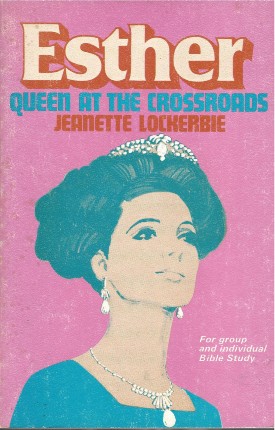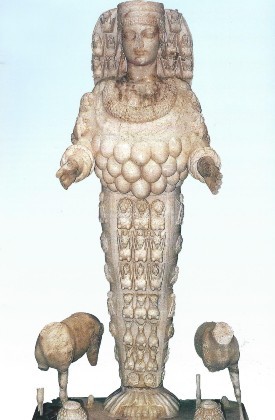‘Dear Ladies: What I Meant to Say…’ (Signed, St. Paul)
By Neil Earle
 PAUL UNDER PRESSURE: Many of his letters were written under duress or even dealing with life and death – crucial context for his letters.
PAUL UNDER PRESSURE: Many of his letters were written under duress or even dealing with life and death – crucial context for his letters.“Clarification is coming” is a familiar phrase in the age of 24/7 and political sound bites. Have you ever thought while reading the Bible that the hard-driving Paul of Tarsus may have needed space to clarify his more controversial statements?
Most of us know a few of them. His declaration that maybe singlehood was better than marriage makes sense in a time of expected persecution on the church (1 Corinthians 7:23-29). In our day 1 Corinthians 14:34 and especially 1 Timothy 2:12 are bitterly debated. They state, respectively, “I do not permit a woman to teach or to have authority over a man; she must be silent” and “Adam was not the one deceived; it was the woman” (1 Timothy 2:12, 14).
“Ouch!” react many in the women’s movement…and beyond. Perhaps the classic text that brands Paul a misogynist (a man who dislikes women) is Ephesians 5:22-24. You’ll remember that one. It’s a good one to discuss during International Women’s Month. “Wives, submit to your own husbands, as to the Lord. For the husband is head of the wife, as also Christ is head of the church…so let the wives be to their own husbands in everything.”
A Second Look
You have to wonder how Paul would explain some of these statements on “The View.” You have to think that the St. Paul who pleaded that Christians be “all things to all men” might demand equal time for some special pleading himself.
So let’s try to do that for him. How might Paul seek to answer his critics across the centuries, many of whom, incidentally come from within the Christian church. Some of Paul’s statements when taken out of context have allowed many men – including some who really are misogynists – to hold women back, to emotionally and spiritually stifle their wives and much worse, unfortunately. This is not an issue of “academic theology” after all. Many churches, including our own, have made mistakes in this direction in the past. So, how might Paul answer his critics?
 ESTHER: The Bible consistently salutes deserving female characters.
ESTHER: The Bible consistently salutes deserving female characters.“Dear Ladies…”
He might begin by setting a wide-angle context. “Dear Ladies, please remember that most of the letters I wrote were crisis-oriented. I was trying to set things right in some of my new churches. I was dealing quite often with things that were getting out of hand.”
This is important to keep in mind. Any letter writer who uses such phrases as “let him be accursed,” “O foolish Galatians,” “shall I come to you with a rod,” “note that man,” etc., is obviously working under pressure. Under pressure we all say things that need to be rounded out later, or set beside other less visceral statements. The crusading missionary Paul was a man whose life often stood in jeopardy every hour, who faced “perils of waters, perils of robbers, perils in the city, perils in the wilderness, perils in the sea” (2 Corinthians 11:26).
Few of Paul’s critics – male or female – would want Paul’s schedule.
I like to remind audiences that Paul’s letters were not dictated in the air-conditioned comfort of a huge office with staff members bustling around as he sipped on a café latte telling them, “Be brave, brethren, be strong.” Not at all. Repeatedly and repeatedly, Paul risked his life for the Gospel, and he well knew that pen and ink was not as good as face to face (1 Corinthians 4:19).
In reading written documents, context is everything. It is vital to remember that Paul’s instructions about women preachers were given in letters filled with warnings about “deceiving spirits, doctrines of demons.” He reported on saints shipwrecking their spiritual lives, and corrected pesky rogues preaching nonsensical fables (1 Timothy 4:1).
Literary scholars know this: the writer gets the benefit of the doubt, not the critic. Quite often Paul was living in a spiritual war zone (Ephesians 6:12). In fact, he wasn’t even what we today would call a “systematic theologian.” He was a pastor responding to pressure. He often went at things “on the fly,” to use a hockey analogy.
Actions Speak Louder
The biggest fact of all in Paul’s defense is to see how Paul conducted his life. Here the old proverb “actions speak louder than words” really applies. Paul was a man who had a gift for friendship. That included lots and lots of women. He praised and admired outstanding women leaders he came across, including:
Culture Matters Matter
These case histories have to be set against the legend of “Paul the misogynist.” But what of his seemingly blanket condemnation of women preachers in 1 Timothy 2 and 1 Corinthians 14?
The discussion here has turned into a small growth industry. Some Paul scholars remind readers that that there are other statements in the first letter to Timothy (wherein he seems to rate women’s intellects inferior) that are not meant to be absolute commands for the church for all times. For example, very few churches today follow Paul’s rules in 1 Timothy 5:9. Here he counseled Timothy to forbid help to any widow under the age of sixty. Few churches consider this binding today. It is clear from the context that church assistance was being abused in the Ephesus church (1 Timothy 1:3). Similarly, even conservative theologians of an older generation such as C.K. Barrett and Donald Guthrie both argue the point that women “newly emancipated through faith in Christ, had begun to dominate men and were in danger of bringing the church into disrepute” (New Bible Commentary, page 1298).
 GROTESQUE IMAGE: The popular fertility goddess of ancient Ephesus may have affected Paul’s recommendations about church women’s behavior in the local church.
GROTESQUE IMAGE: The popular fertility goddess of ancient Ephesus may have affected Paul’s recommendations about church women’s behavior in the local church.This is an interesting rebuttal. To mention the city of Ephesus perhaps pinpoints another reason why Paul felt the need to caution women against prominent teaching roles in that specific congregation. Ephesus was a city renowned in the ancient world for the worship of the goddess Diana, served by over 1000 officially licensed temple prostitutes (Acts 19:24-27) and whose disgusting image (pictured) blatantly undermined true femininity. Many historians feel that the presence of women in prominent roles in the Ephesian church could have been misunderstood by potential converts among the Jews and Gentiles. “Why, they’re just like us” they might have concluded, “their women take their cue from Great Diana.” Paul, successful evangelist that he was, was typically sensitive to outside opinion (1 Corinthians 14:23).
Other scholars direct Paul’s readers to particular passages closer at hand that could be easily misunderstood. He seems to be condemning elegant dress and jewelry in 1 Timothy 2:9, for example. In other texts he is clearly not so puritanical (1 Corinthians 11:15). In 2 Corinthians 3:12 Paul uses precious stones to symbolize godliness.
“Men, Keep Silent!”
In 1 Corinthians 14:28-30 Paul indicates there are even certain circumstances in which even men were to keep silent, e.g. a teacher speaking in a foreign language or uttering ecstatic speech without someone to interpret. This shows how specific, even localized, matters of custom and culture often entered into Paul’s diverse rulings. In 1 Corinthians 14:35 there is the built-in assumption that all women in the church have husbands. Other verses show this is not the case. So, the issues are complex. It is difficult to read someone’s mail from 1950 years ago with complete clarity. For a much deeper overview of these more sensitive passages consult the web site at http://www.gci.org/lit.
It seems obvious that some of Paul’s apparent strictures against women make more sense when re-read as a matter of regulating worship activities for congregations trying to function in a variety of cultural settings – such as Christian women needing to set a more restrained example in “anything goes” Ephesus and Corinth.
But what of Ephesians 5:24 and Christian marriage covenants? Some now omit these words from certain wedding ceremonies, especially the command for women to submit to men in everything.
Intelligent Submission
Paul’s statement about women’s role in marriage in Ephesians 5:22-24 has a ready-made qualifier built into it. Paul is getting into some deep and even mystical explanations for the husband-wife relationships. He is taking it back far beyond the divorce courts to the spiritual realm. He is teaching the ideal. The husband as the woman’s head is viewed through the lens of Christ’s leadership of the church. This is a high standard indeed with which to gauge husbandly leadership. In Paul’s prescription for husbands which immediately follows, he even “ups the ante” further: Husbands are to love their wives just as Christ loves the church.
This means that male leadership in marriage is to be based on Christ-like sacrificial love. This is the diametric opposite of lustful proprietorship, criminal neglect and physical or emotional abuse. As Paul writes so eloquently: Jesus gave his “all” for the church.
This is how men are to love their wives.
Seen from this perspective, Paul’s counsel to the New Testament church is aimed – if that is the right word – much more at the husband than it is the wife! Note that his instructions to the Christian husband occupies almost nine verses in Ephesians 5:22-33 as against three and a half verses for the wife.
How ironic! Paul’s use of such words as “nourish” and “cherish” to describe ideal, sacrificial love towards the wife is perhaps the greatest New Testament tribute to Paul’s high regard for Christian women. He knew and surrounded himself with so many capable women, women who were leaders in their own right and indispensable co-workers in building the New Testament church.
“Dear Ladies,” Paul could be saying, “This is what I really meant to say. Read Ephesians 5 again, more carefully please.” It’s not hard to imagine Priscilla, Lydia, Lois, Eunice and a host of Paul’s women friends smiling in agreement.